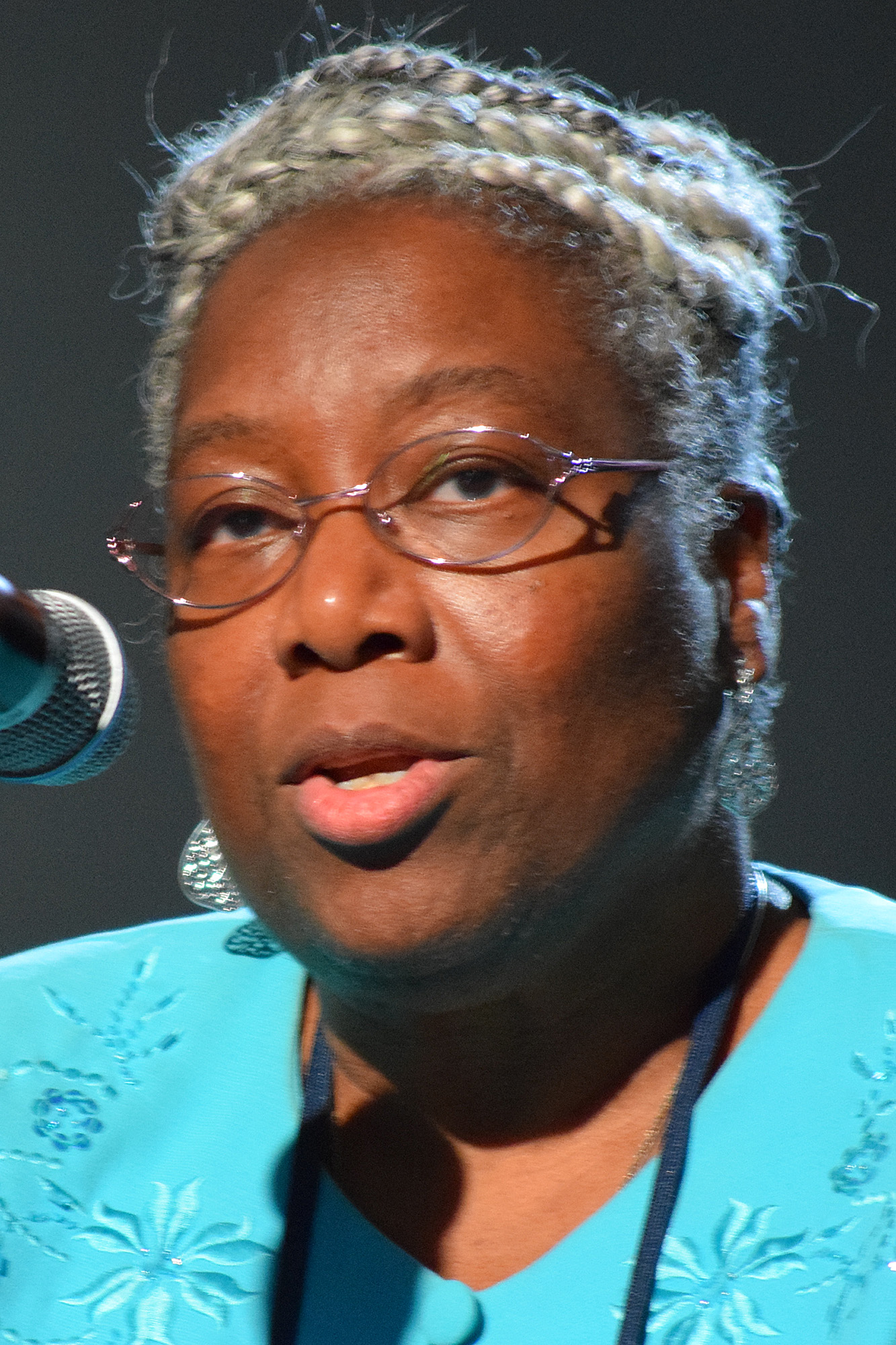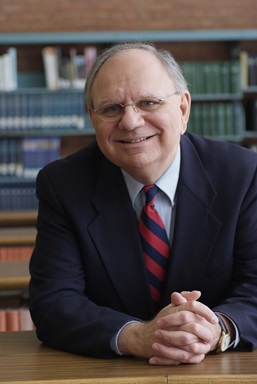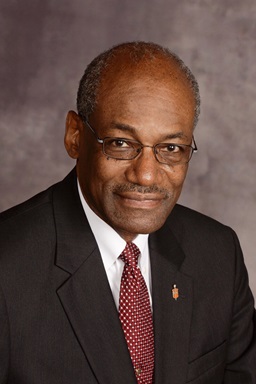Matthew 25:40-45 (New Revised Standard Version)
Martha E. Banks is a delegate to the 2016 and 2019 United Methodist General Conferences. Photo courtesy of the East Ohio Conference of The United Methodist Church.
40 And the king will answer them, ‘Truly I tell you, just as you did it to one of the least of these who are members of my family, you did it to me.’ 41 Then he will say to those at his left hand, ‘You that are accursed, depart from me into the eternal fire prepared for the devil and his angels; 42 for I was hungry and you gave me no food, I was thirsty and you gave me nothing to drink, 43 I was a stranger and you did not welcome me, naked and you did not give me clothing, sick and in prison and you did not visit me.’ 44 Then they also will answer, ‘Lord, when was it that we saw you hungry or thirsty or a stranger or naked or sick or in prison, and did not take care of you?’ 45 Then he will answer them, ‘Truly I tell you, just as you did not do it to one of the least of these, you did not do it to me.’ 46 And these will go away into eternal punishment, but the righteous into eternal life.”
John 15:1-2, 5-6 (Common English Version):
Jesus said to his disciples: I am the true vine, and my Father is the gardener. 2He cuts away every branch of mine that doesn’t produce fruit. But he trims clean every branch that does produce fruit, so that it will produce even more fruit.
5I am the vine, and you are the branches. If you stay joined to me, and I stay joined to you, then you will produce lots of fruit. But you cannot do anything without me. 6If you don’t stay joined to me, you will be thrown away. You will be like dry branches that are gathered up and burned in a fire.
As we approach February 2019, as a General Conference delegate, I am faced with having to vote on segregation.
This is, supposedly, not about race as it was in 1939, but I question that premise. The “politically (theologically?) correct” veneer indicates that the conversation is about human (is ours different from other mammals?) sexuality.
Yet, in the United States, the discussion always seems to be about how conservative Africans are. Then, suggestions about a separate “American” church are raised, suggestions that do not include the United Church of Canada or any churches in Central or South America. If there is a future separate American to-be-named subdenomination, it will not be a “central” conference, because we understand that “central” means “colored” with Europeans as tokens to explicate that this could not possibly be about “race” or ethnicity.
More to the point, a separate “American” church will ensure that the white supremacists and nationalists among us will never have to serve under African bishops — a major risk in a global church inclusive of all of God’s children.
In 2017, as we began another quadrennium, the East Ohio Conference theme was “Bearing Fruit that Lasts: Called, Committed, and Connected” based on John 15:1-17. We cannot bear fruit and we will die if we are disconnected from Jesus, The Vine, the very reason we call ourselves Christian. Why, then, did I start by quoting Matthew 25? Matthew 25 explains in detail what Jesus means by obedience, love, and “fruit that lasts.” It is clear that Jesus is speaking about the expectation that we are to feed the hungry and thirsty, welcome strangers (yes, including aliens and refugees), clothe the naked, and visit the ill and imprisoned. These behaviors are fruits that last. These are the marks of obedient disciples. These are the behaviors modeled by loving people making disciples.
Why, then, are we peeping into the bedrooms of disciples and discipling leaders? I recognize that it is titillating for some to talk ad nauseam about their imagination of other people’s sexual behavior.
At the same time, as an African-American woman, I recognize how terribly abusive it is to have one’s sexuality imagined and stereotyped. Every possible aspect of black women’s sexuality has been designated as sinful as part of the justification for kidnapping my forebears, for holding them and my more recent ancestors in unrelenting bondage with attendant rape, for describing me and my augmented family as undesirables, and for attempting to limit where and how we worship.
The Holy Trinity is about Love, the relationship that is Love. If a discipling leader is loved, supported, and strengthened to feed the hungry and thirsty, welcome strangers, clothe the naked, and visit the ill and imprisoned, should I not be thanking the Good Lord for providing the discipling leader with a loving, supporting, and strengthening partner? Should I not be turning my energy and resources to feeding the hungry and thirsty, welcoming strangers, clothing the naked, and visiting the ill and imprisoned? If I visit the ill, might I not notice that many of them could be well with reasonable health care and preventive treatment? If I visit the imprisoned, might I not notice that many are incarcerated simply because they are “different” or in need?
Must I be distracted by the human call to ignore good works and sit in judgment, judgment reserved for God (Matthew 7:1)? If I must be so distracted, then let he or she who is without sin cast stones (John 8:7) at all of us who wear polyester. In the winter chill, I am likely to combine wool and cotton (Deuteronomy 22:11). And we must immediately remove from United Methodist membership all people, especially clergy, who eat shrimp, crab, clams, oysters, mussels, lobster, or pork (Deuteronomy 14:8-10).
It seems inappropriate to focus on only one of the many sins outlined in Deuteronomy. We, as human beings, are limited in determining which of those sins are better or worse than others. Jesus was as silent about the combining of clothing fibers and the eating of shellfish and pork as he was about the details of sexuality, and He actually equipped a sexual sinner to spread the Good News (John 4:3-30,39-42).
During the third week of February 2019, about 900 United Methodists will gather, at a cost of $3.7 million U.S. They will gather not to discuss how to feed the hungry and thirsty people in our neighborhoods and around the world; not to discuss how to make sure that all children and adults have clothes and shelter; not to discuss how to provide appropriate healthcare and support for all of the people on earth; and not to discuss how to free the many people unjustly incarcerated. Instead, they will discuss the sexuality of people called by God to serve as purveyors of the Good News.
How many people will die unnecessarily during that week while we are distracted instead of in ministry? Who do we think we are? Let us pray fervently that we are not setting ourselves up as fruitless branches to be pruned and burned.
Banks, Ph.D., is an East Ohio Certified Lay Speaker and delegate to the 2016 and 2019 United Methodist General Conferences. She is a retired neuropsychologist, former professor of psychology, and 2008-2009 president of the Society for the Psychology of Women.
Like what you're reading? Support the ministry of UM News! Your support ensures the latest denominational news, dynamic stories and informative articles will continue to connect our global community. Make a tax-deductible donation at ResourceUMC.org/GiveUMCom.




